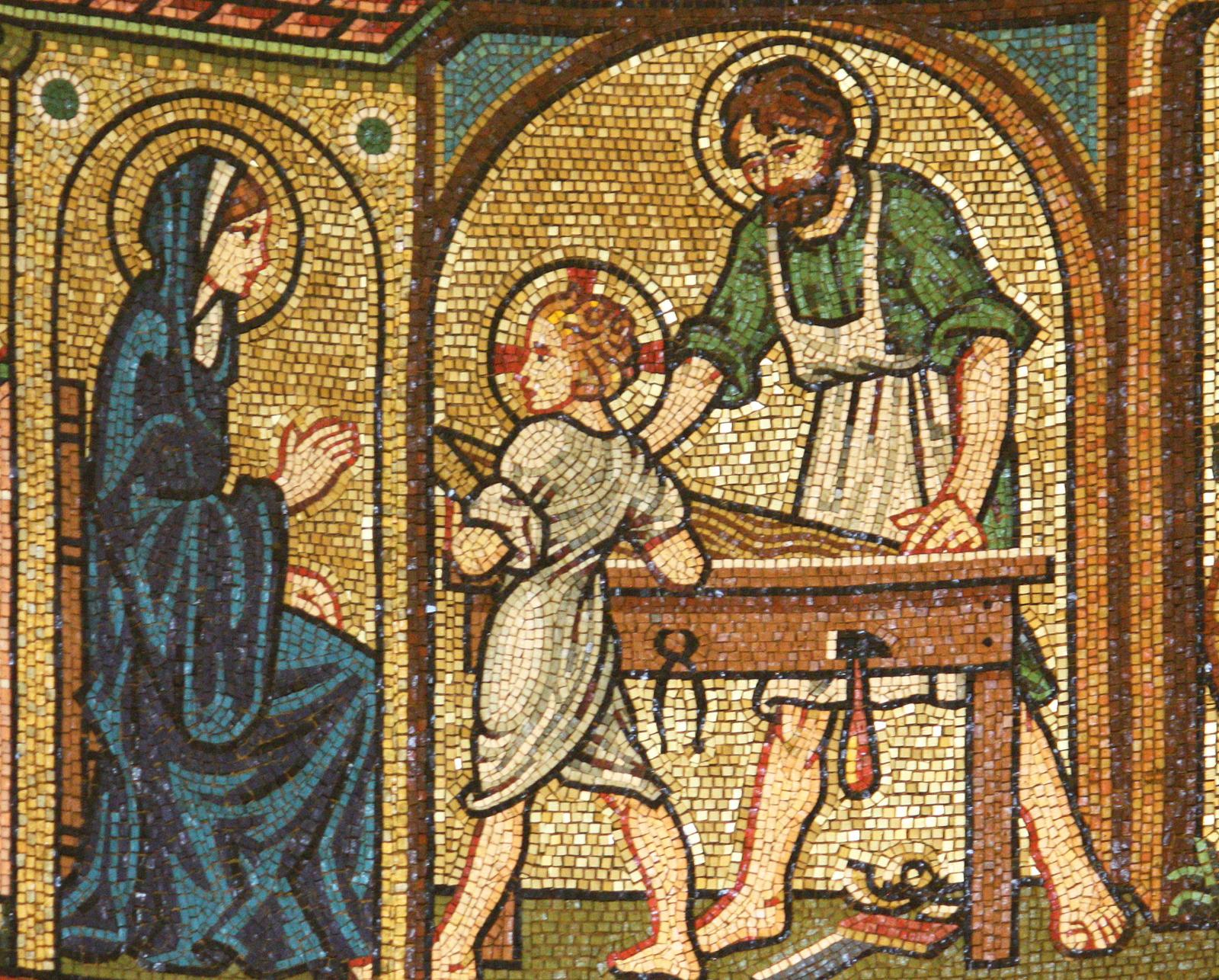By Deacon Roger Carr-Jones, Marriage and Family Life Coordinator for the Diocese of Westminster
I am a parent and a grandparent: however, I have always felt slightly uncomfortable when Father’s Day comes around. I am never really sure what to do or expect. This is because there is a gap in my life. I grew up without either a positive or negative model of fatherhood, as my father died when I was nine months old. Being of a generation that simply got on with things, my mother no doubt as a coping mechanism, simply did not talk about the past. Unlike my older brother I have no awareness of loss, yet the emotional impact on my formative years is significant. As a consequence, my life has been a journey of learning to be a father. With some difficulty and frequent failures, I have discovered that being a father is an organic experience, one of continual change and growth, not least also as a step- father like St Joseph.
My wife would say that my early model of fatherhood was more akin to that of her grandfather, an Edwardian, rather than someone who felt comfortable in being vulnerable in the role. Therefore, as a father in the making, I have moved with some difficulty from viewing the world of fatherhood from the outside, to finally learning to inhabit this exciting space. Speaking about fatherhood on the Feast of St Joseph in 2022, Pope Francis used a phrase which brought home the universality of fatherhood, ‘Fathers are not born but made. A man does not become a father simply by bringing a child into the world, but by taking up the responsibility to care for that child’ (Patris Corde). Whenever a man accepts responsibility for the life of another, in some way he becomes a father to that person’.
The original focus of Father’s Day had a religious focus on celebrating fathers and fatherhood. This is where we need to begin our own reflection on what it means to be entrusted with the life of another, whether the connection is biological, adoptive or those to whom we have taken on the mantle of fatherhood. It is a reminder that the scriptural understanding of the family is so much richer than the modern concept of the nuclear family. The absence of a father in my life is not what I would have chosen, yet it has meant continually growing and reassessing what fatherhood means. Being a father is not simply a word, it is a lived experience, a process filled with sacrifice, self-discovery and moments of grace.
I am frequently humbled by those who choose the path of adoption. I have a very strong memory of baptising twins who had been adopted. Their adoptive parents had set out to find them and to provide a home. Their adoptive father was following in the footsteps of St Joseph, expressing one of the deepest expressions of love. It is the love and stability of the parents which is the gift that we can offer to the world. Fatherhood or motherhood is an expression of humanity and moves us away from selfishness and introspection. We see the devasting effects in our society where support for the recognition of the richness of fatherhood and motherhood is being ignored or undervalued.
My personal understanding of fatherhood has been deepened through letting go of false notions and ideas of being a father. This is why I am drawn to reread on a frequent basis Henri Nouwen’s book, ‘The Return of the Prodigal Son: a homecoming.’ It is a book of love and a reminder that fatherhood has nothing to do with power or control. Instead, it is developing and growing into a fatherhood of compassion. It is the daily challenge to love as God loves, and to accept to love ourselves as God loves us.
A father-figure is one who makes a positive and constructive difference to a person’s life. Do we need to recognise this about selves, or to notice where we have received the gift of fatherhood on the journey?
